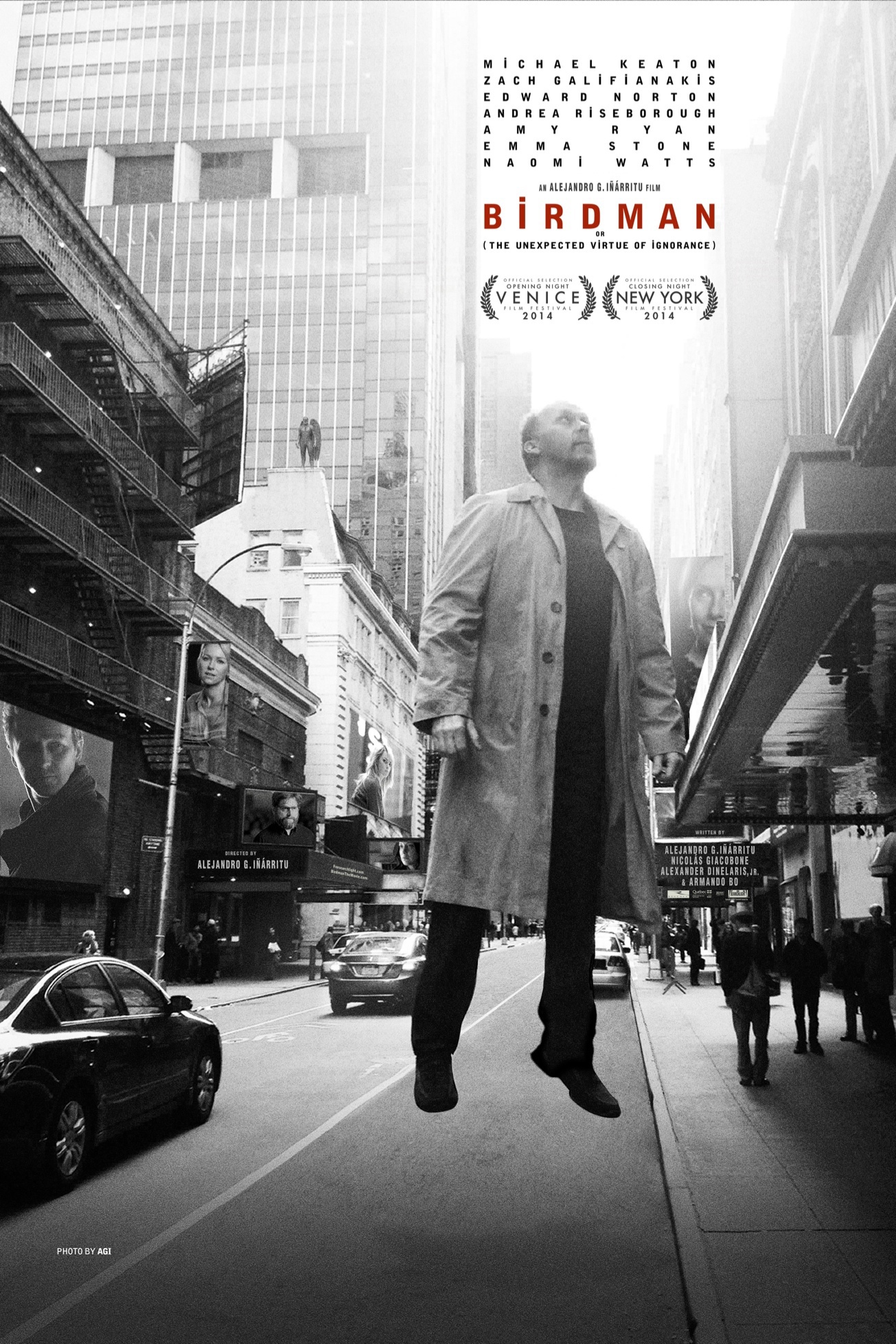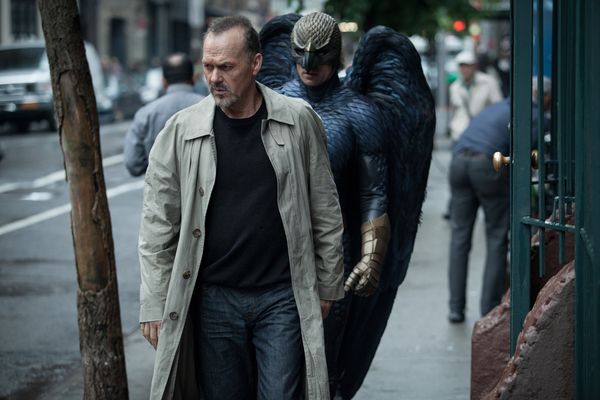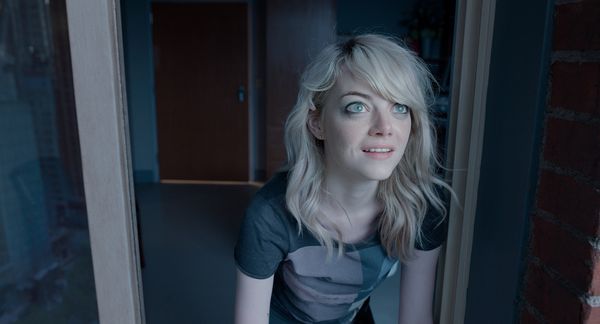On Birdman and Suicide
 Monday, February 23, 2015 at 3:08AM
Monday, February 23, 2015 at 3:08AM 
by Sebastian Nebel
(Spoilers.)
What do we talk about when we talk about Birdman?
I guess people latch onto things they can relate to, things they recognize. For a lot of professional reviewers I follow online and elsewhere, that would be how the film portraits their line of work, notably in the form of the theater critic and talk of Twitter, social media, and things 'going viral.'
Others – including, I'm assuming, the filmmakers themselves – see the main focus of the film in the struggle of the artist, the search for meaning and relevance, the divide between supposedly empty blockbuster entertainment and high, respectable art.
I am neither artist nor critic, as much as I like to pretend to be either at times. So while I recognize that Birdman has something to say on these subjects, it's not saying it to me, at least not directly.
We latch onto the things we relate to, we recognize. What I saw in Birdman was a deeply troubled man who finds himself so tortured by depression – in his case personified by a long gone superhero alter ego that serves as constant reminder of the fame, the power, the endless possibilities that the march of time has taken from him – that he desperately clings to a last-ditch effort to revive some of the past's glory, only to find that this, too, does not liberate him from his mental anguish.
During the course of the film, Riggan Thomson (Michael Keaton) engages in a variety of self-harming acts and tries or gets close to trying to take his own life three times, finally achieving the desired result.
We hear of another, possibly first failed suicide attempt in a story he tells his ex-wife (Amy Ryan). It's one of his many cries for help, some cryptic, some explicit, all unheard.
Suicide attempts on screen are not rare, but what I found remarkable was that in Birdman, unlike most films I can think of, trying to kill yourself isn't the turning point, the traumatic abyss you climb your way out of to start the healing process, now with concerned loved ones at your side and no longer inflicted with the wish to end it all.
Riggan's on-stage bullet to the face is greeted with many things, actual concern for his mental state being least among them. His family and friends quickly dismiss looking for a deeper motivation behind the incident, highlighting instead all the ways he finally got what he wanted all along: the play is a hit, he himself has gone viral. The people love him, the critics respect him. Everything worked out fine. It's a happy ending that most movies would gladly indulge in.
But it's a false one, as we and Riggan are reminded of by the reappearance of Birdman in the actor's hospital room.

Because Birdman isn't Riggan's depression. Birdman is the shape that Riggan gives his anxiety, the costume he puts on it, trying to give form to something that's entirely beyond his grasp.
He's not depressed because he's not as famous as he was, because he's grown older, or because he feels unloved and unadmired. These are just the things his depression claims as reasons because they are easy targets.
Real depression has no inherent focus, no singular triggers. Like one of those plasma globes it stretches out its feelers in all directions until it finds a surface to land and concentrate on. Easy targets, usually: feelings of loneliness, of heartbreak and loss, of insecurity and insignificance. But take those away and it will just look for other ones.
This is what Riggan learns in that hospital bathroom. The love of his family, his newly acquired flood of Twitter followers, the positive review in the Times. None of it matters. None of it solves anything.
The only solution Riggan can see is the one he has been coming back to over and over again. And while some or all of his prior attempts may have been deliberately botched because they were intended as cries for help more than definite, final acts, there is no ambiguity this time. He is done with life and done with clinging to the Birdman fantasy he used to disguise his depression with to make it seem like a slightly lesser and therefore possibly solvable problem.
Michael Keaton is not in every single scene of Birdman, but I do believe that we are experiencing things from Riggan's perspective even when he's not present. Scenes between Emma Stone and Edward Norton are at the same time projections of Riggan's fears (his daughter getting involved with the actor) and hopes (her being brought to the realization that maybe he wasn't such a bad father, after all).
Similarly, the scene between Naomi Watts and Andrea Riseborough is all about their characters needing to define themselves through his approval. It's his vision of how a conversation between them might play out - big kiss at the end and everything - just like many of the film's fantastical scenes are clearly his version of events, not what is actually happening.

And so the last shot of the movie is not the filmmakers telling us that Riggan Thomson really was Birdman all along, flying away into a happy ending.
Instead, we see what Riggan would have wanted to see: his daughter, finally appreciating the pain her father was in, and taking comfort, joy even, in the fact that he found a way out of it.
And that's the real tragedy.
Asking for help is never easy, and it can be devastating when even the people closest to you don't recognize how much pain you are in. Depression is a serious and complicated issue, and thankfully there are trained professionals who know how to recognize and approach it in ways friends and family just can't be expected to.
There is no shame in being depressed or suicidal.
There is no shame in seeking help.



Reader Comments